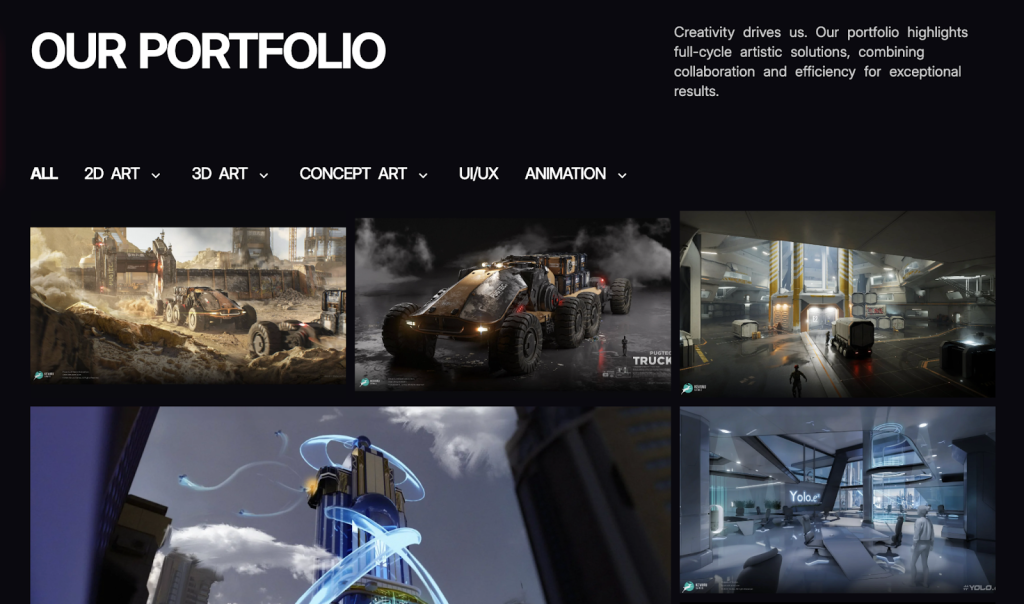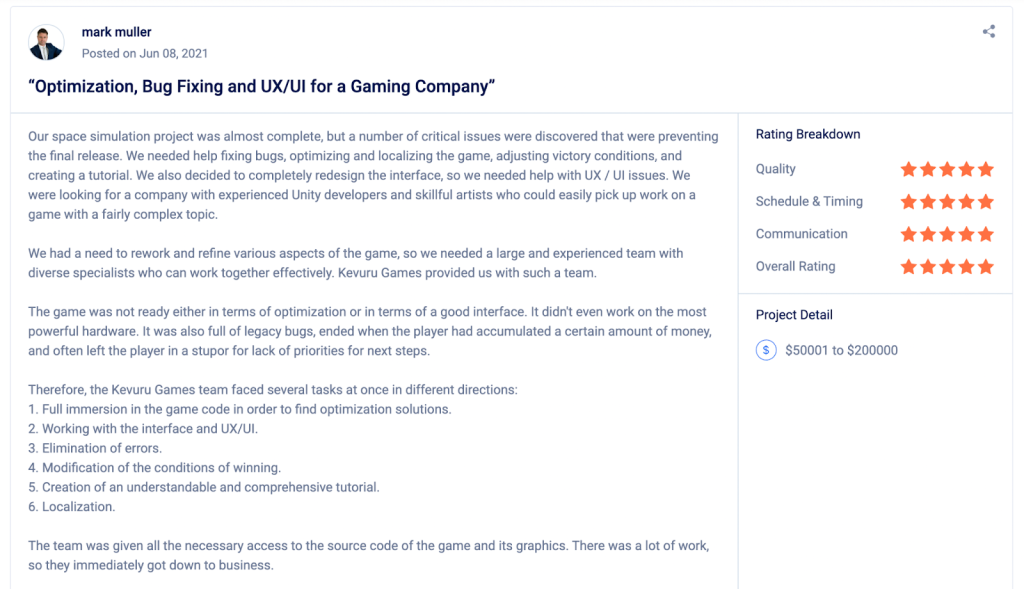How to Choose a Game Art Studio in 2025
Finding a good partner is key in today’s industry. Whether you need game art, gaming development, or game animation, the right studio will determine how smooth the process goes and how strong the final visuals turn out. In a crowded market of game art design, it’s hard to pick the one that truly fits your project.
In this article, we’ll break down what to look for in a studio, what questions to ask, and how to make sure you’re choosing a partner who understands your goals as well as your deadlines.
What Key Factors Should You Consider When Selecting a Game Art Design Partner?
Choosing the right game art studio isn’t just about who makes the best-looking visuals. A good partner in game art development should fit your project’s needs on several levels:
- Portfolio and Style Match
Some specialize in stylized 2D art, others in realistic 3D. If you want a hybrid or experimental style, make sure they have experience in that direction.

Image source: Kevuru Games portfolio
- Experience with Similar Projects
A studio that has worked on projects of your scale and genre will adapt faster and anticipate challenges. - Technical Capabilities
The team should prepare models, rigs, and textures that are optimized for your target platform — whether mobile, PC, console, or VR. Ask about their pipeline and tools. - Communication and Workflow
Smooth collaboration is as important as artistic skill. Look for clear reporting, set milestones, and openness to revisions. - Scalability and Flexibility
Can the studio handle a sudden increase in scope? Some projects start small and grow quickly — you need a partner who can scale up without losing consistency in quality. - Budget vs. Value
The cheapest option often ends up costing more in fixes and delays. Focus on the studio that offers the best balance of cost, reliability, and quality.
How to Read Client Reviews and Case Studies
Looking at a game art company’s portfolio gives you a sense of style, but reviews and case studies show how they actually work. Here’s how to make sense of this information:
- Look for detailed reviews, not just ratings
Pay attention to what clients say about communication, deadlines, and flexibility. Comments about problem-solving are especially telling — they reveal how the studio handles real challenges. - Check multiple sources
Search independent platforms like Clutch or GoodFirms, LinkedIn recommendations, or even community forums.

Review on GoodFirms
- Read case studies carefully
Case studies should explain not just what was delivered, but also how. Look for details about tools, pipelines, and how the team adapted to client requirements. - Match experience with your needs
A studio may have great reviews for mobile puzzle games, but that doesn’t guarantee the same quality for a large 3D RPG. Focus on feedback that comes from projects similar to yours. - Red flags to notice
Watch for repeated mentions of missed deadlines, unclear communication, or budget overruns. Even if the final art looked good, these are signs of risk if you’re planning a bigger or longer project.
In short, reviews and case studies help you see beyond the portfolio. They reveal whether a studio can be a reliable partner — one that delivers not only quality assets but also a smooth working process.
Finally: What Questions Should You Ask an Online Game Development Company Before Signing a Contract?
Before you commit to a partnership, make sure you’ve asked the right questions. A good game company will be transparent about their process, deadlines, and communication. Here is the key information you need:
- Who will be working on your project? (team size, roles, seniority)
- What tools and pipelines do they use? (game engines, art workflows, QA process)
- How do they handle revisions and feedback? (number of rounds, timelines)
- What happens if deadlines shift? (flexibility, backup plans)
- Do they offer post-launch support? (bug fixes, updates, art expansions)
These aren’t just formalities — they protect your budget, timeline, and creative vision. A reliable game art studio will have clear answers to all of them. And if they don’t, that’s a red flag.
